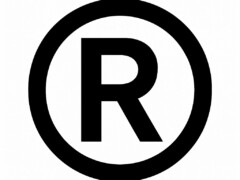Defending Prop 65 lawsuits has become a high-stakes reality for many food businesses that sell into California. Under Proposition 65—the state’s Safe Drinking Water and Toxic Enforcement Act of 1986—companies must provide warnings

This badge needs to appear on food products that contain a Prop 65 chemical, along with a statutory disclaimer
when their products expose consumers to chemicals known to cause cancer, birth defects, or other reproductive harm. The law applies not only to California-based businesses but also to any company with products reaching the California market.
What Is Proposition 65?
The Office of Environmental Health Hazard Assessment (OEHHA) maintains the official list of chemicals regulated under Prop 65. This list currently includes over 900 substances, and the state updates it annually.
Food companies often encounter Prop 65 claims for chemicals such as:
-
Acrylamide, found in baked or fried starchy foods
-
Lead, a heavy metal present in some supplements and spices
-
Cadmium, detected in chocolate and leafy greens
-
Arsenic, common in rice and rice-based snacks
-
Furfuryl alcohol, used in flavorings and roasting processes
The California Office of Environmental Health Hazard Assessment (OEHHA) maintains an official list of chemicals and their thresholds on its website. This list now includes over 900 substances, and is updated at least once annually. Common chemicals at issue in food industry litigation include acrylamide, lead, cadmium, arsenic, and furfuryl alcohol.
Maximum Penalties for Violations
Defending Prop 65 lawsuits can become expensive and time-consuming. The statute authorizes penalties of up to $2,500 per day, per violation. These fines accumulate quickly—especially when a company sells the same product over several years without proper warnings.
Beyond civil penalties, businesses may also face:
-
Mandatory product reformulation or relabeling
-
Court orders restricting further sales
-
Plaintiff’s attorney’s fees and expert costs
-
Reputational harm and lost market share
Since Proposition 65 allows private individuals and law firms to sue, enforcement isn’t limited to state regulators. These “bounty hunter” lawsuits create ongoing litigation risk for food businesses.
Lawsuits Against Food Companies: Real Examples
California courts have seen hundreds of Proposition 65 lawsuits involving food products. Here are just a few notable examples:
-
Acrylamide in Chips and Crackers
Several manufacturers settled claims that acrylamide forms during high-temperature cooking. As part of the settlement, some agreed to add warnings or change recipes. -
Lead in Supplements and Protein Powders
In 2013, supplement makers paid over $1 million to resolve claims related to lead content above safe limits. They also agreed to ongoing testing and labeling changes. -
Cadmium in Chocolate Products
Chocolate brands came under scrutiny for cadmium levels in dark chocolate. Plaintiffs argued the brands failed to warn consumers, and several companies reached settlements that required public disclosure and mitigation efforts. -
Arsenic in Baby Foods
Baby food makers have faced claims over inorganic arsenic in rice-based snacks. Some settled by agreeing to reduce contamination and provide consumer warnings.
Each case underscores the risk: even trace amounts of naturally occurring substances can trigger litigation if warnings are missing.
Why This Matters to Food Businesses
If your business sells into California, you are subject to Prop 65—even if you operate elsewhere. Because of the law’s strict liability standard and private enforcement structure, businesses must take proactive steps to manage their exposure.
By understanding the statute, testing your products, and evaluating chemical risks, you can reduce the chances of a costly lawsuit. When litigation does arise, a strong legal defense and experienced counsel become essential.
In this series, we’ll detail other critical aspects of Prop 65. Click below for the next articles in the series:
Our subscription service
Clients realize the greatest value out of our services when they stack them together comprehensively. Our subscription-based service plans enable our clients to weave our services into the fabric of their businesses at affordable and predictable rates.
















